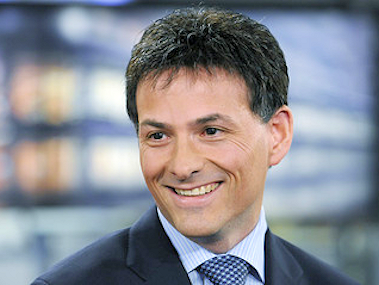 David Einhorn’s Greenlight Capital has won a court order preventing Apple from holding a proxy vote on a proposal that would stop the company from being allowed to issue preferred stock.
David Einhorn’s Greenlight Capital has won a court order preventing Apple from holding a proxy vote on a proposal that would stop the company from being allowed to issue preferred stock.
In his ruling, U.S. District Judge Richard Sullivan decided that Apple had improperly bundled three proposals, including the preferred shareholder measure, which it has said it opposes, with other measures which it supports. Greenlight, which is an Apple shareholder, had made a compelling case that it would be harmed and would likely prevail in a suit.
Greenlight, in a statement, called the ruling, “A significant win for all Apple shareholders and for good corporate governance.†It went on:
“We are pleased the Court has recognized that Apple’s proxy is not compliant with the SEC’s rules because it bundles different matters in Proposal 2. We look forward to Apple’s evaluation of our iPref idea and we encourage fellow shareholders to urge Apple to unlock the significant value residing on its balance sheet.â€
Einhorn had sued Apple in a federal court in Manhattan, arguing that its proxy statement violated SEC rules that allow shareholders to vote on “each matter†in the proposals. He has been feuding with Apple over a proposal in the proxy sent to shareholders he says would prevent Apple from issuing perpetual preferred shares to Apple shareholders. He believes such preferred shares would be a good mechanism through which Apple might distribute more cash to its shareholders. Apple has $ 137 billion in combined cash, short- and long-term investments on its balance sheet as of the close of its most recent quarter.
Apple CEO Tim Cook has dismissed Einhorn’s complaints as bizarre. At the same time, Apple has in company statements echoed by Cook sounded willing to consider the notion of preferred shares. At a Goldman Sachs conference last week, Cook called the idea “creative.â€
Einhorn has been campaigning for Apple to create preferred shares â€" he calls them iPrefs â€" and argued that a proposal on its proxy statement, specifically Proposal 2, would eliminate that possibility from the corporate charter. Apple has argued that the proposal wouldn’t specifically eliminate preferred shares from being issued.
Cook said last week that the proposal doesn’t eliminate preferred shares, but it does eliminate what he called “blank check preferred†shares from the charter. “What that means is not that Apple could not issue or release preferred shares,†he said at the Goldman conference last week. “It just says that if Apple decided to do it, we’d need to go to our common shareholders to get their approval.â€
No comments:
Post a Comment